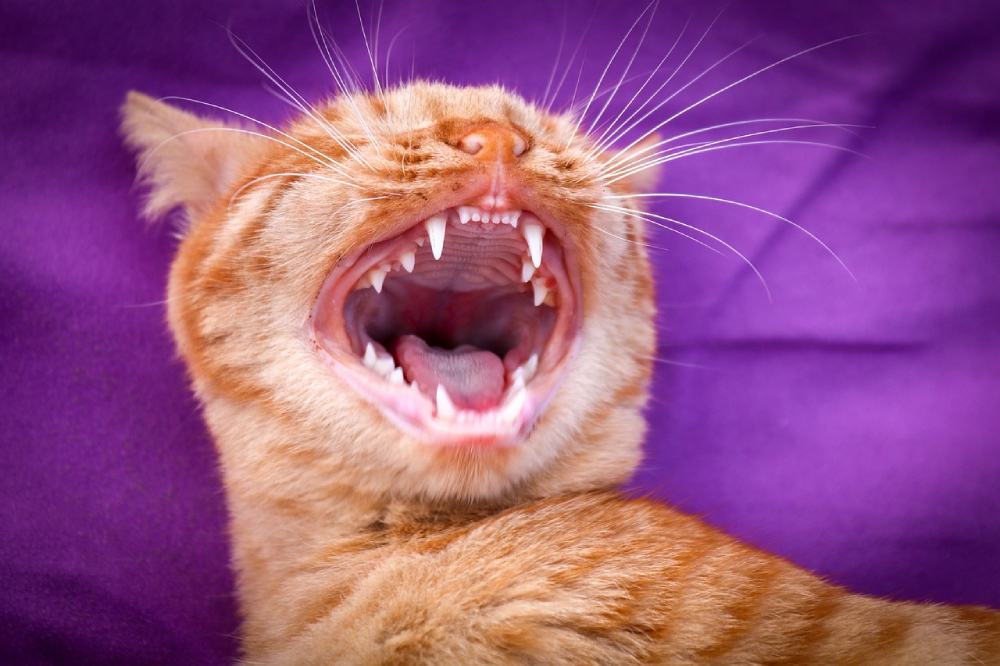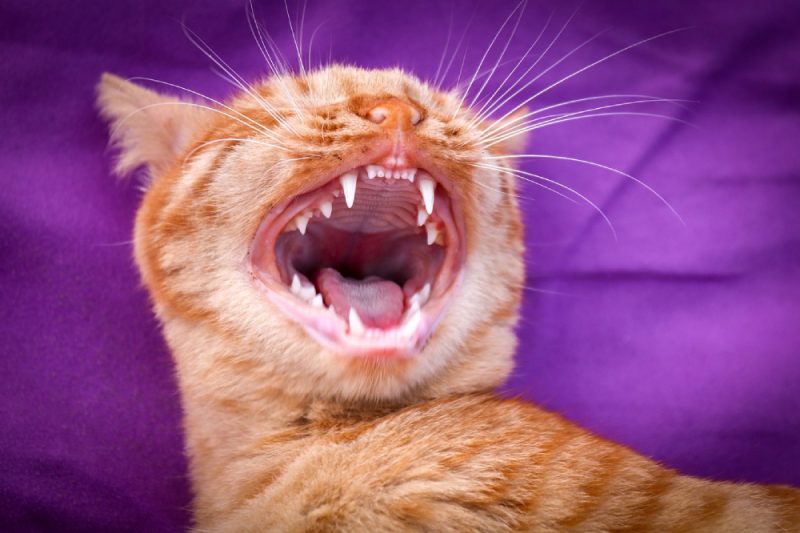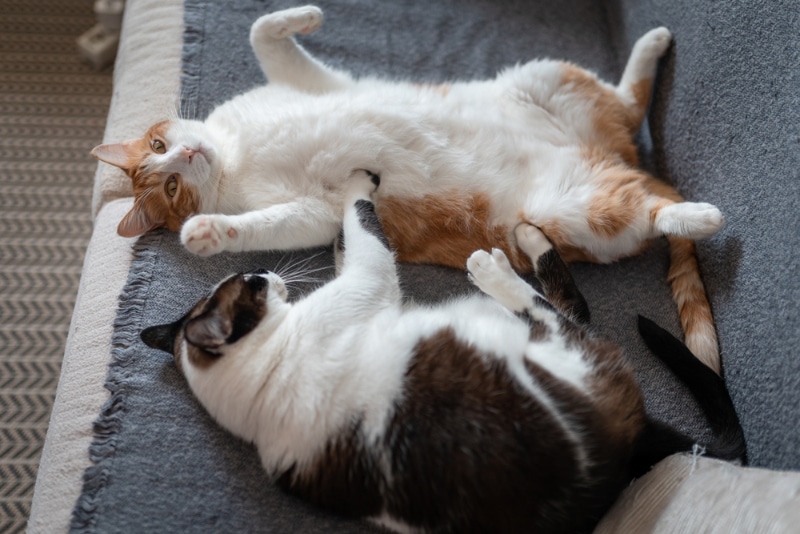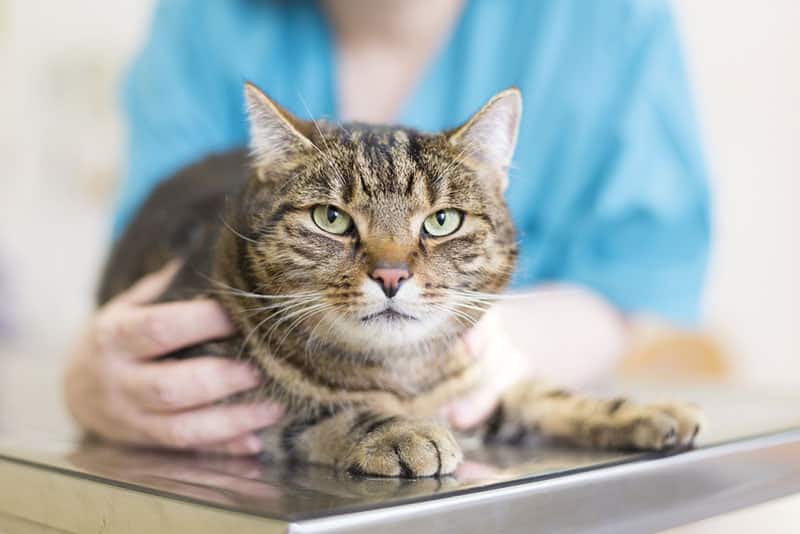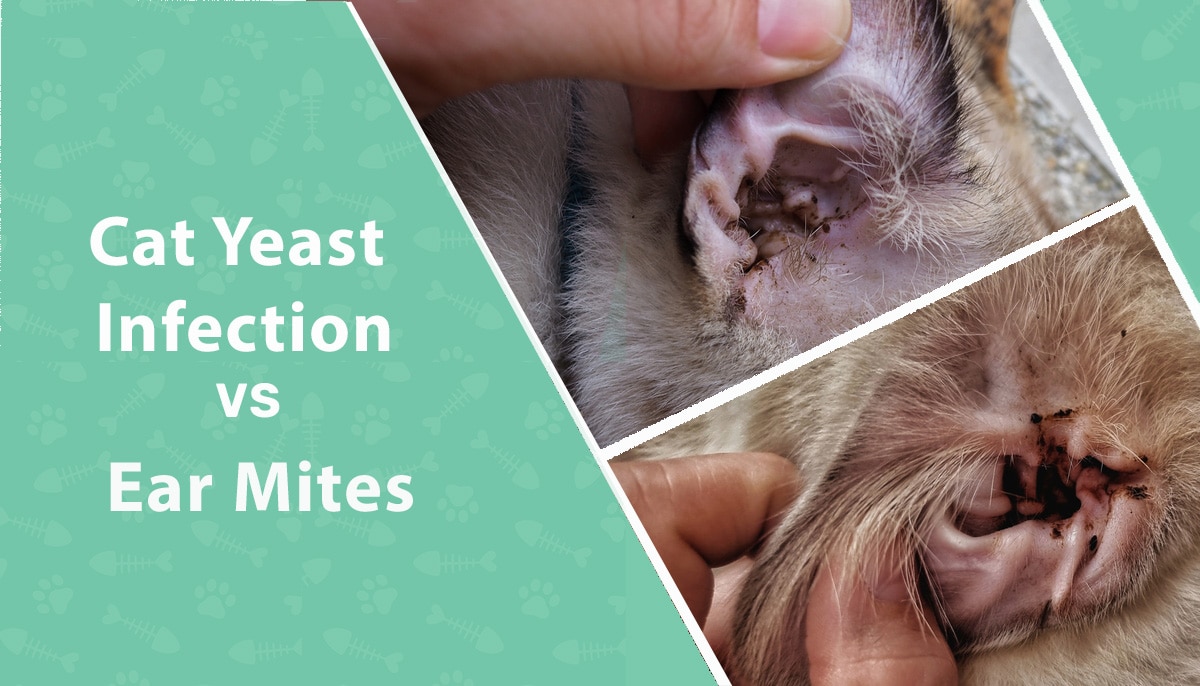Click to Skip Ahead
Dental problems are a pretty big issue among cats. In fact, it is estimated that over two-thirds of cats over 3 have some degree of dental disease. However, losing a tooth doesn’t necessarily equate to a problem.
If you’ve noticed your cat has started to lose teeth, don’t freak out! Sure, losing teeth at random is not a normal occurrence and certainly deserves your attention, but it might not be as bad as you think.
In this article, we’re going to go over a few reasons why cats might lose their teeth and what you can do to help them.
Losing Teeth Can Be Normal
The cat’s age matters. If your cat has been an adult for quite some time, this does not apply to them. However, if you have a kitten or juvenile on your hands, they might just be losing their baby teeth!
However, if your cat is older, and you have found a tooth or two laying around, it’s time to make an appointment. This could signal a problem that needs to be addressed by a licensed veterinarian.
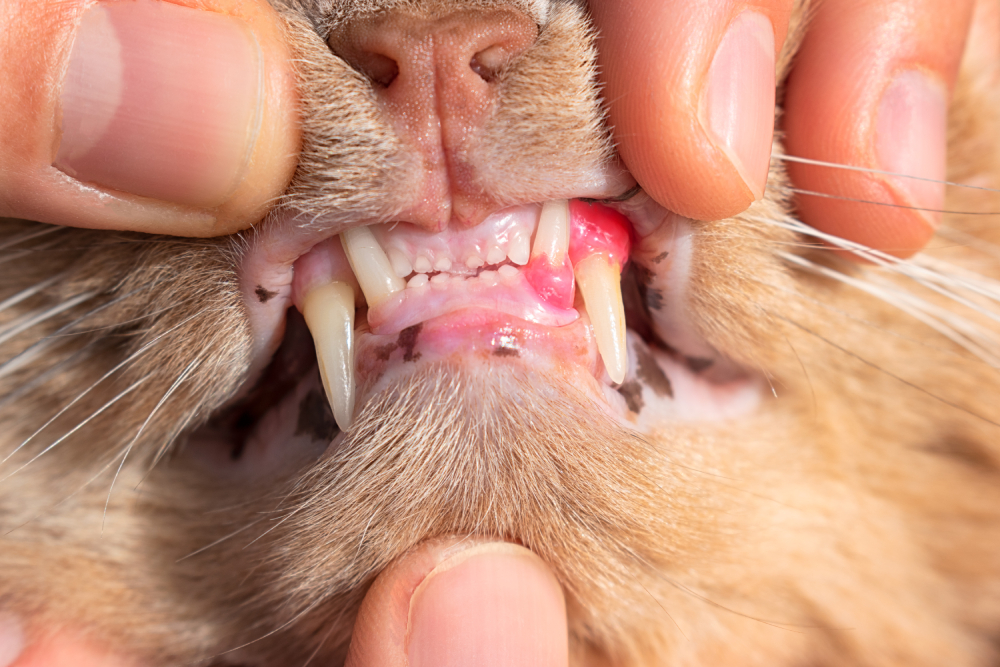
The 3 Reasons Your Cat Might Lose Teeth
So, let’s get down to the nitty-gritty on why your cat might lose their teeth. Age can speak volumes, so remember to keep in mind your cat’s current life stage.
1. Losing Baby Teeth
If you recently brought home a kitten, time might be getting away from you. Around roughly 6 months, a cat should have a set of 30 adult teeth. In the meantime, you might find a little tooth here or there.
In this case, if your cat falls within this age range, it is a totally natural and expected reason as to why your cat is losing teeth. If you suspect teething, make sure you’re giving your kitty lots of fun toys and snacks to chew on. That being said, younger cats can still lose teeth due to disease, so check their mouth for any problems and contact a vet if you are concerned.
2. Dental Disease
If your adult cat is losing their teeth, it is quite possible that they have some form of dental disease. Dental disease is a highly common issue with cats, as we mentioned before.
There are stages of periodontal disease. Initially, it starts as simple plaque buildup, but quickly leads to advancing issues. These issues can be incredibly painful for your cat and cause problems when they perform simple tasks like grooming, eating, or even playing.
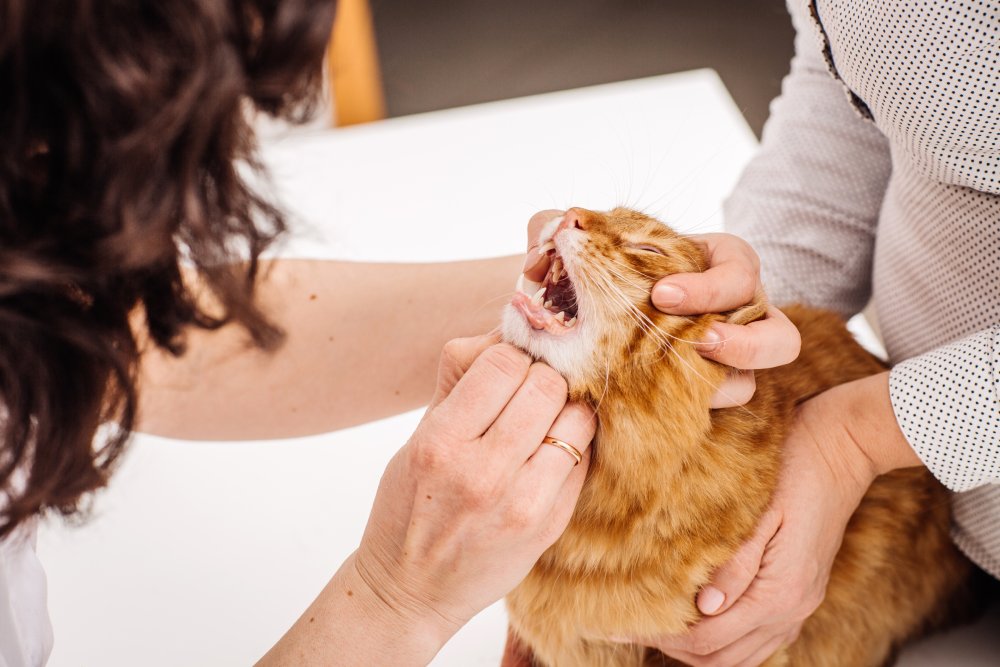
Plaque
Plaque is the first sign of a problem. Plaque is a thin, filmy debris that covers the teeth. At this stage, plaque is easy to remove from the tooth. Over time, however, this plaque can harden on the enamel.
Tartar
Have you ever looked at your cat’s teeth and noticed a brownish-yellow layer of funk by their gun line? This is tartar! This is the result of plaque being left on the teeth for too long. Once tartar forms, dental disease is much more likely, and the situation is harder to reverse.
Gingivitis
Gingivitis is a gum disease that can quickly lead to periodontal disease. Once the disease advances, it is sometimes impossible to reverse. During this stage, you can expect your cat to have swollen gums, drooling, difficulty chewing, and bad breath.
Periodontal Disease
When the ligament connecting the tooth to the socket becomes infected, this is known as periodontal disease. It causes teeth to become loose, as well as pain in the jaw. The bacteria involved can also spread in the bloodstream to other areas of the body. Sometimes a large pocket of pus forms, known as a tooth root abscess.
Stomatitis
Stomatitis causes more serious oral inflammation than gingivitis. This condition leads to many of the same visual signs but to a more severe degree. For example, you might notice a lack of grooming and unintended weight loss because it is difficult for your cat to complete these tasks. Some cats, such as those infected with FIV, are more prone to stomatitis and gingivitis.
Resorption
Resorption is an interesting form of dental disease that causes the body to essentially take the tooth back. Usually, it starts inside the tooth and spreads to the root or enamel. This is painful and not a direct result of other dental disease.
3. Breaks
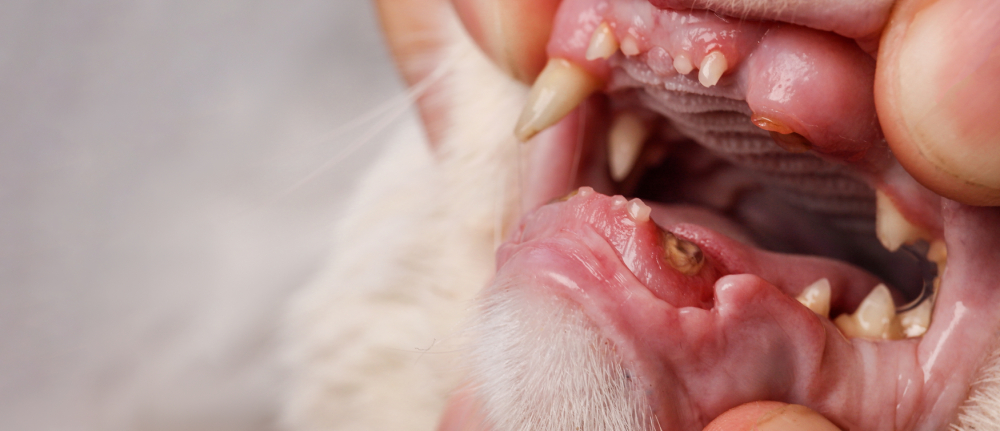
Some cats are more aggressive chewers than others. If your cat chews things particularly rough, there’s a good chance they could’ve broken off their tooth. Regardless of whether they’re biting another object, playing with another cat, or had some other form of trauma, accidents happen.
When a tooth is broken off, it is usually a fragment of a tooth. Checking your cat’s mouth you may see the remainder still in there, even if you can’t the root is likely to be present below the gumline. These broken teeth can be a route for infection into the jaw, so they are usually removed unless the break is only very superficial.
How to Prevent Tooth Loss in Cats
So, how exactly do you prevent tooth loss in cats? It’s definitely possible. Even though your cat might have an underlying problem with oral health, you can still take measures to ensure it doesn’t get worse.
Practice Good Dental Hygiene
It is an easily missed step—don’t beat yourself up about it. It’s rare to meet a person who actually brushes their cat’s teeth, even though they could really use it. While daily brushing is the most beneficial, brushing three times a week can significantly improve oral hygiene.
You can purchase kitty toothbrushes or find other creative ways to keep your cat’s teeth looking their best. Visit the Veterinary Oral Health Council for a full list of approved dental care products.
Consider Avoiding Wet Canned Food
Dry kibble is best to clean teeth and is one of the easiest types of food to come by. You can also buy specialized dental diets that are more effective at removing plaque. However, if your cat is losing teeth due to dental disease, dry food might be harder for them to eat and may need soft food until their dental procedure is complete and extraction sites have healed.
Get Your Cat to the Vet
If you think there could be a problem with your cat’s teeth, make an appointment with your vet. While this is very rarely a life-threatening emergency, it can signal a bigger issue that could cause you trouble down the line.
If you wait, it can lead to more costly vet bills and extensive treatments later. So, it’s always best to stay ahead of the game.
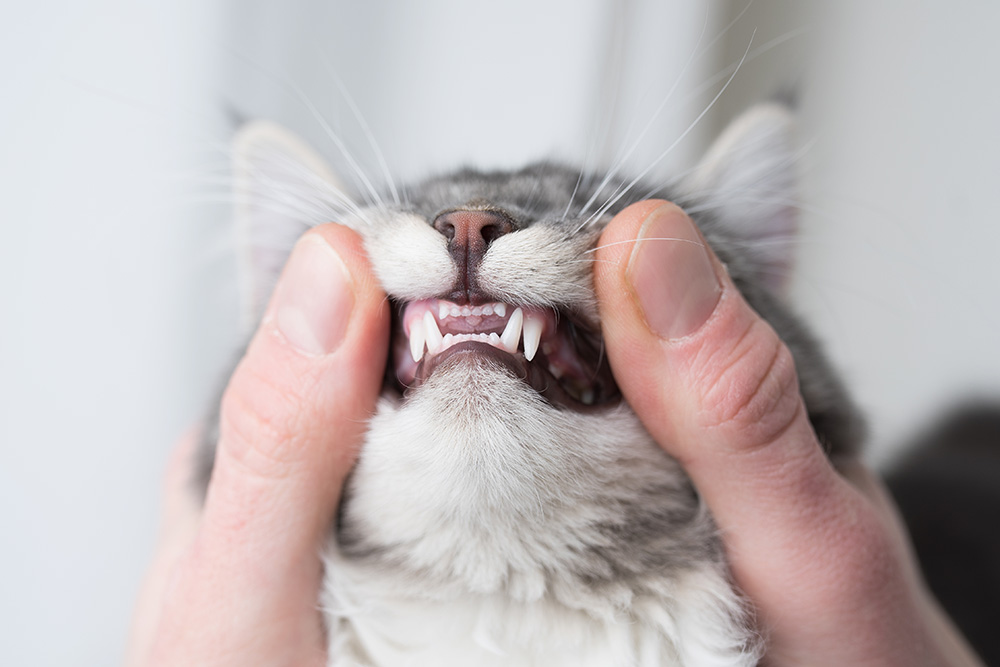
Conclusion
So, now you can gauge a better understanding of potential issues with cats losing teeth. It could be age-related, trauma-related, or a sign that your cat might need dental work. Regardless of the issue, your vet can observe and recommend a solution.
Now you understand how big of a deal dental disease is in cats. While it might not be the underlying cause of your cat’s lost tooth, it should definitely be prevented in the future. Be sure to practice good feeding and hygiene practices with your kitty.
Featured Image Credit: birgl, Pixabay

